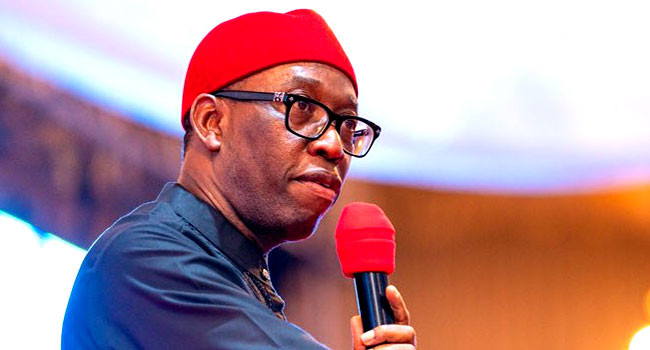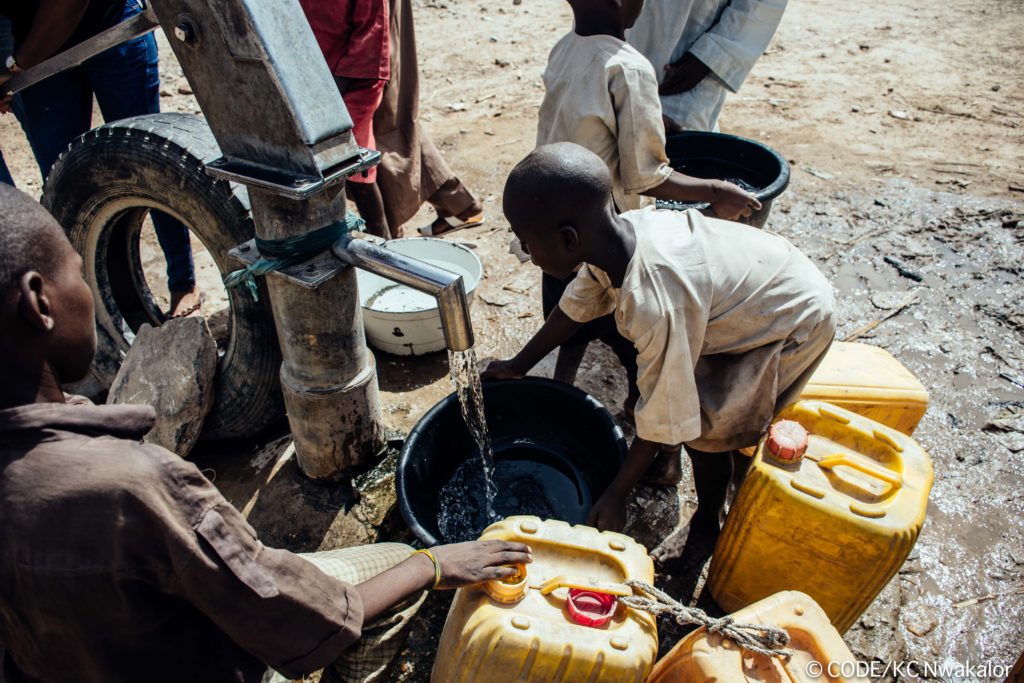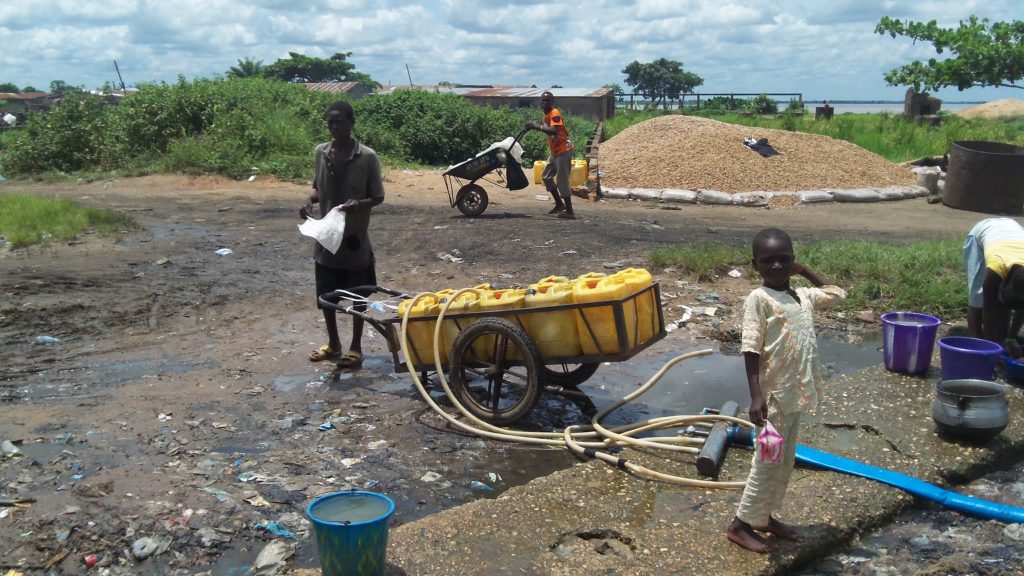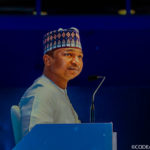By Blessing Uwisike
Delta state, like neighbouring states in the Niger- Delta riverine region, has had more than its fair share of contention with one of its most contumacious problems: Open Defecation (OD) due to lack of toilets and poor access to clean water. Unfortunately the state government has followed the steps of its predecessors by assuring prompt actions to address the situation, but slow to back up its promises with sustainable solutions.

In 2019, Governor Ifeanyi Okowa inaugurated the Steering Committee for the Water Supply, Sanitation & Hygiene and passed the State WASH bill to law, but the State WASH System has recorded slow progress in implementing the policies entrenched in the law. Despite an acknowledgement of the deplorable condition of WASH facilities in Delta state by the Deputy Speaker of the State House of Assembly, Hon. Ochor Chris Ochor, no significant step has been taken to improve the quality of access to clean water for thelife of residents in Delta State, especially the rural areas.
A 2018 Water, Sanitation and Hygiene National Outcome Routine Mapping (WASHNORM) data provided by the United Nations reveals that 68 percent of the Nigerian population have access to basic water supply, and progress towards achievement of universal and equitable access to this water supply has been slow. Only 19 per cent of the national population use safely managed sanitation services, 24 per cent are still practicing OD in Nigeria and 30 per cent in rural areas. The minimal access to clean water, Open Defecation and consequently poor hygiene causes diarrhoea that kills children yearly and puts women at precarious health risks.
On the 5th of February 2020, the U.S. Agency for International Development (USAID) signed a $60.4 million Memorandum of Understanding with Governor Ifeanyi Okowa of Delta State to improve the management and delivery of Effective Water, Sanitation, and Hygiene Services” (E-WASH) services to help residents live healthier lives through reliable access to clean water. The project, closely supervised by Connected Development (CODE), a social accountability Non Governmental organisation will ensure access to clean water and reduce water borne diseases by “strengthening their Water Boards’ capacity to make solid investment decisions, improve billing and collection systems, and ensure greater responsiveness to customer concerns.” (Culled from the US Embassy to Nigeria website).

This partnership is critical as the geographical terrain of the Niger- Delta consists of creeks, rivers and large water bodies. The people of the Niger- Delta and Delta State particularly have built their lives around their physical environment; engaging in commercial activities like fishing; accessing water for household use from the river, and defecating in the same water with hopes that the river carries the faeces away. This thought pattern is quite excusable as the education levels are low with 65% having achieved at most primary education, and income levels correspondingly low. It is estimated that between 50 and 65% live below the poverty level. The complex social environment which has toilet spaces hanging directly above water bodies so that the fecal waste is emptied directly into the river has facilitated an unusually high rate of Open Defecation leading to extreme environmental degradation. Residents who can afford functional water closets are not entirely free from these challenges as the high water level and frequent flooding have the tendency to contaminate their supposedly clean water, making it good enough for only flushing.
Women, Girls, Children and Disabled people are the worst hit when hygiene is not prioritised. Children are exposed to diarrhoea due to unsafe water, while girls and women are not able to fully carry out their daily activities (being in school and going to the workplace especially), as they are forced to stay only in locations where they are most comfortable during their periods, this is usually the home. The disabled are also stuck while trying to use public toilet facilities that were not created with consideration for them.
Addressing the Problem of poor Hygiene through Improved Sanitation Measures and Accountability
Every reform must start from the top, and then cascaded to the people at the grassroot; in the same light, the onus is on the government to put effective measures in place that ensures the availability of functional and clean public toilets, potable water, and hygiene education of its citizens. State WASH apparatus, Rural Water and Sanitation Supply Agency (RUWASSA), LGA WASH departments and units, and community Water Supply, Sanitation And Hygiene Committee (WASHCOMs) must be clearly established and work towards one goal – To sustain better access to Water Supply, Sanitation and Hygiene (WASH).

To show the government’s commitment to partner with the citizens, Community Led Total Sanitation must be prioritised. While this sanitation strategy is broadly used in Nigeria, strengthening it will enable the system to yield maximum dividends. Trained WASH specialists should also be tasked with the coordination of educating communities and capacity-building in the most prone regions, with the purpose of driving behavioural change and hygiene consciousness. Educating members of the community (especially riverine areas) on the dangers of open defecation; and supporting them with adequate facilities and knowledge sharing that encourages them to take the maintenance of the public toilets as their personal responsibility will not only promote the well being of the people, it fosters unity and cooperation among them.
Directly engaging policy makers and stakeholders like USAID and UNICEF and updating civil society organizations (CSOs) like CODE, which is currently tracking the eradication of Open Defecation in Delta State, on the progress recorded on the use of allocated funds will ensure that funds released to tackle poor hygiene are well disbursed.
Prioritising young girls women, children and the disabled while restructuring plans are drafted will address gender parity, increase income opportunities for women, contribute to the overall well being of the family, ensure a progressive girls education, and make for an inclusive society.
Comments (02)
Leave a Reply Cancel reply
This site uses Akismet to reduce spam. Learn how your comment data is processed.


Hep bir arkadaşımızdan duyduğumuz, asla bizim bilmediğimiz porno yıldızları sosyal medyada oldukça dikkat yaratıyor.
İşte instagram’da en.
Türbanlı porno karışık’s Tweets. Pinned Tweet.
paylasimin yeni adresi. Boyle birini istiyorum.
The following media includes potentially sensitive content.
Change.